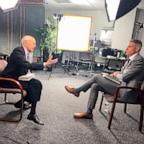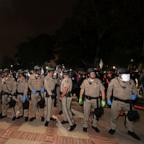Partisanship Splits Consumer Confidence
Sept. 12, 2006 — -- It must be politics: Public ratings of economic conditions are nearly as partisan as they get, and far more so than as recently as just last month.
It happens in election years when economic conditions are debatable -- lemonade to some, lemons to others. Indeed while partisanship in consumer confidence is raging, it was higher still at the time of the 2004 presidential election.
Sixty-four percent of Republicans in this week's ABC News/Washington Post consumer survey say the economy's in good shape. Yet only 22 percent of Democrats agree, and it's nearly as low, 33 percent, among independents, the classic swing voters.
The overall ABC/Post Consumer Comfort Index, based on this rating along with views of the buying climate and personal finances, stands at -13 on its scale of +100 to -100. But that ranges from -37 among Democrats to +33 among Republicans, a vast 70-point gap.
Among independents it's -20, placing their economic assessments much closer to those of Democrats (17 points away) than Republicans (53 points).
The Democratic-Republican gap in consumer confidence has grown from a 41-point spread in mid-August to today's 70 points. In data back to 1990 it's rarely been bigger, peaking at 90 points in July 2004, during the run-up to that year's presidential election.
INDEX -- At -13 the overall ABC/Post index is its best since Aug. 6, and up from a recent low of -19 (tying its worst of 2006) two weeks ago. Improving gasoline prices likely have helped, but there's post-Labor Day election-year partisanship in there as well: Since Aug. 27 the index has gained 10 points among Republicans, vs. five among independents; it's down by (an insignificant) two points among Democrats. (Gas averages $2.62 a gallon in the latest federal Department of Energy data, down 42 cents in the last six weeks.)
The CCI, as noted, is based on Americans' ratings of the national economy, the buying climate and their personal finances. This week 37 percent say the national economy is in good shape and 36 percent call it a good time to buy things. As usual more, 57 percent, rate their own finances positively, matching its long-term average.
It's ratings of the national economy and buying climate that have recovered in the last two weeks -- each up by four points.
TREND -- At -13 the index is below its long-term average, -9. It's ranged this year from a low of -19 in May and again two weeks ago to a high of -7 in March and April. The CCI's all-time high was +38 in January 2000; its record low, -50 in February 1992.
GROUPS -- As usual, the index is higher in better-off groups. It's +28 among higher-income Americans while -62 among those with the lowest incomes, -2 among college graduates while -43 among those who haven't finished high school, -9 among whites but -46 among blacks and -1 among men while -25 among women.
The index continues to be best in the West, at +6, compared with -8 in the South, -23 in the Northeast and -32 in the Midwest.
Here's a closer look at the three components of the ABC/Post CCI:
NATIONAL ECONOMY -- Thirty-seven percent of Americans rate the economy as excellent or good; it was 35 percent last week. The highest percentage of Americans rating the economy as excellent or good was 80 percent on Jan. 16, 2000. The lowest was 7 percent in late 1991 and early 1992.




